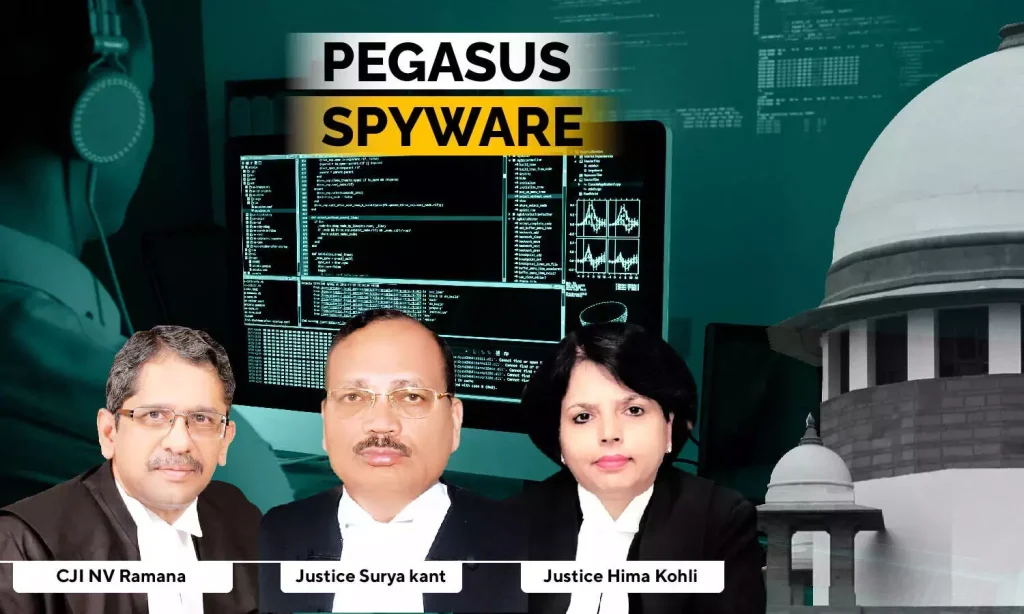The findings of the committee the Supreme Court appointed to look into claims that journalists, civil society activists, lawmakers, and other individuals had their personal communication devices illegally targeted by Israeli-made malware Pegasus were made public on Thursday (August 25).

“Information is not instantly accessible. The report was delivered under a cover that was sealed.”
The Indian government did not collaborate with the committee, according to the bench that included Chief Justice of India N. V. Ramana and Justices Surya Kant and Hima Kohli. This was anticipated because the government has previously refused to say if the spyware had been used to snoop on civilians before the Supreme Court.
The technical committee discovered malware in five out of the 29 devices it received, according to the court, but was unable to identify whether it was indeed the Pegasus software.
Additionally, those who turned in their phones asked that the report not be made public, so the court would decide how much of the report to make available to the public.
The Bench did state that it will post the report that Justice R V Raveendran, the supervising judge, had written on its website. In addition to Justice Raveendran’s report, there is also the technical committee’s two-part report.
A Justice Raveendran-led investigation was commissioned by the Supreme Court in October 2021 to examine into claims of unauthorised spying using Pegasus.
The committee was given seven terms of reference from the court, which were essentially the information that needed to be gathered to make a decision.
They included figuring out who purchased Pegasus, if the petitioners in the lawsuit were indeed targeted by the programme, and what legal framework permitted the use of such spyware on ordinary citizens.
In order to guarantee that citizens’ rights to privacy were safeguarded, the committee was also instructed by the court to offer proposals for a framework of laws and policies governing cyber security.
Initially, the committee was supposed to turn in its report in eight weeks.
The unauthorised monitoring of individual mobile devices has been accused of violating citizens’ fundamental rights. Facts are used to support decisions in matters involving the enforcement of fundamental rights. When these facts are contested or unknown, committees that serve as an agent of the court are frequently tasked with determining them. These committees or fact-finding teams have the power to call witnesses, compile field reports, and tell the court.
Technical issues in the case necessitated a thorough fact-finding process before the court could decide whether or not there had been a violation of fundamental rights and issue the appropriate remedies.
According to the Israeli business, Pegasus is a formidable tool that is exclusively sold to governments or government organisations, never to private citizens. Additionally, given what is known about the price of a licence, most individual buyers would not be able to afford one, or at the very least think it was not worth the money.
However, the administration has made almost no commitments. The Supreme Court stated on August 25 that it did not cooperate with the committee and that it received no communication from the committee.
